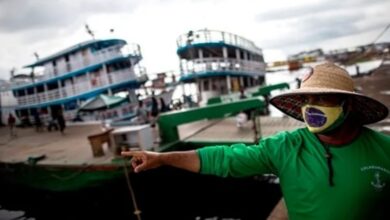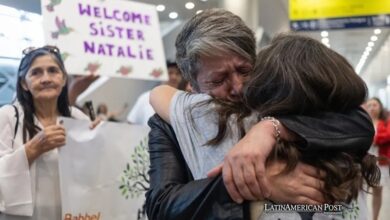Dealing with the loss of a loved one during the pandemic
From my room, I hear crying from the living room. My mother is curled up on the sofa, shedding tears inconsolably. Together with my brothers, we embrace her in silence.

The pandemic has changed the way grief is lived. / Photo: Unsplash
LatinAmerican Post | Carolina Rodríguez Monclou
Listen to this article
Leer en español: Cómo lidiar con la pérdida de un ser querido durante la pandemia
My uncle died in Popayán in the middle of the coronavirus outbreak in Colombia. A warm, bright, and successful man deeply loved by his colleagues, family, and friends. Getting the news of the death of a loved one by call in the midst of a global crisis is devastating, and even more so when you can't mourn with your family due to quarantine. The feeling of helplessness is overwhelming.
Various Masses were held on Facebook Live, family gatherings on Zoom, and condolences on WhatsApp. Said like that it seems quite strange to me, but I suppose this is the world we live in now.
Through a screen we see the people we love most suffering and we cannot be there by their side to hug them tightly and transmit a little warmth to them, so we use words as the only form of comfort. In the middle of a deep talk, the call is cut off. Some of them drop the signal, others forget to turn off their microphones so as not to interrupt the person who is speaking, anyway…
The question then arises of how to deal with the loss of a loved one during the pandemic. Since the confinement makes us more vulnerable, the crying does not stop. My mother hardly ate and her eyes remained swollen from crying. But she was not the only one.
Staying in constant contact with the family helped her a lot. Just as we were strong for her, she was strong for our grandmother. Sometimes this is life: you cannot collapse in front of everyone.
Also read: Global threats: How lessons from COVID-19 can prevent environmental meltdown
In the room, next to the bible, we have a small altar to my uncle, with his photograph, a cross, candles, and figures of angels, the virgin, and Jesus. From the albums, we took their photos and put them in a visible place. In my case, I chose the photograph of my fifteen-year-old party, in which we went out dancing the waltz together. I look at it every day and wonder why such a beloved man had to spend his last moments away from his family.
"I don't want to die," he said by call to one of his children in the United States, "calm down daddy, you're not going to die," he replied …
My uncle has come to visit us in dreams, and in doing so, he says goodbye with a big hug. He has always been a generous man who gives himself unconditionally to others. After having gone through this experience, I just want to tell you that if you are having a difficult time now because you have someone you love in the hospital, sick or keeping you company like a guardian angel, I want you to know that everything will be fine. You don't have to be strong and you don't need to hide your pain.
That person you love so much wants to see you happy, moving forward, and making your dreams come true. Remember: keep living in your heart and no one can ever take it away from you.




